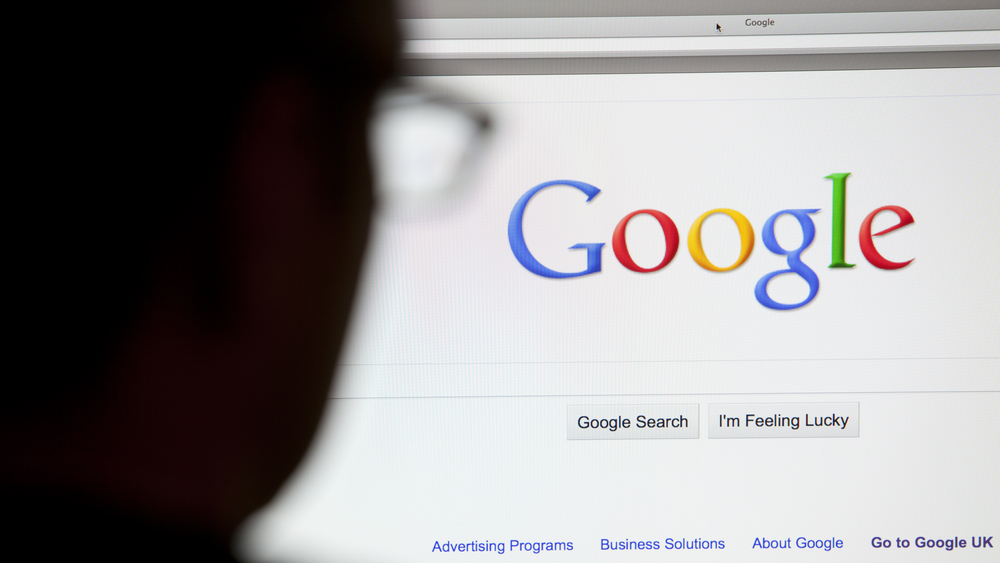High Court rules against Google in 'right to be forgotten' case
London cases help define the line between privacy and public interest

A businessman won his 'right to be forgotten' case against Google in a ruling made in London on Friday.
Since the EU's landmark 2014 decision, the company has been inundated with requests from individuals for over 2.4 million links they claim are inaccurate, inadequate, irrelevant or excessive to be removed, and has complied with around 800,000 of them.
However, it denied requests from two businessmen, resulting in legal action that has made its way to the High Court.
The man who won his case, known as NT2 to preserve his anonymity, was one of the two unnamed men fighting for their past convictions to be delisted. He was convicted more than a decade ago ago for "conspiracy to intercept communications" and served six months in prison, according to The Guardian.
Due to his remorse, the nature of his crime and Warby's opinion that the conviction was not relevant to NT2's future business dealings, Warby ruled in favor of NT2, but did not grant any damages.
Warby's conclusion stated that "the crime and punishment information has become out of date, irrelevant and of no sufficient legitimate interest to users of Google search to justify its continued availability".
The ruling on the other businessman, NT1, was also released on Friday. NT1 was convicted in the late 1990s of false accounting and served four years in prison.
Sign up today and you will receive a free copy of our Future Focus 2025 report - the leading guidance on AI, cybersecurity and other IT challenges as per 700+ senior executives
Unlike NT2, Warby ruled against the claimant, saying: "He has not accepted his guilt, has misled the public and this court, and shows no remorse over any of these matters."
Warby refused to order the information delisted because it is still relevant for people doing business with NT1 and, while not totally deleted, would be much more difficult for them to find.
Justice Warby expects to see more claims coming in since NT2's successful case.
While some fear this ruling will trigger an onslaught of public figures trying to delete their history, Google has tried to assuage these concerns while maintaining its own rights.
Its EU Privacy Removal page states it will delist information "where the interests in those results appearing are outweighed by the person's privacy rights," but that it may refuse to remove information of public interest, such as "financial scams, professional malpractice, criminal convictions, or public conduct of government officials".
Antony White, the barrister representing Google in the court cases, said earlier in one of the trials that Google will not allow people to "rewrite history" or "tailor [their] past".
-
 The open source ecosystem is booming thanks to AI, but hackers are taking advantage
The open source ecosystem is booming thanks to AI, but hackers are taking advantageNews Analysis by Sonatype found that AI is giving attackers new opportunities to target victims
-
 Westcon-Comstor enters Balkan market with REAL Security acquisition
Westcon-Comstor enters Balkan market with REAL Security acquisitionNews The acquisition gives the distribution giant immediate access to an established partner ecosystem spanning eight Balkan markets
-
 Cyber pros say the buck stops with the board when it comes to security failings
Cyber pros say the buck stops with the board when it comes to security failingsNews Fines, sanctions, and even prosecution are all on the table when it comes to cyber failings, practitioners believe
-
 Top data security trends
Top data security trendsWhitepaper Must-have tools for your data security toolkit
-
 Why bolstering your security capabilities is critical ahead of NIS2
Why bolstering your security capabilities is critical ahead of NIS2NIS2 regulations will bolster cyber resilience in key industries as well as improving multi-agency responses to data breaches
-
 SEC data breach rules branded “worryingly vague” by industry body
SEC data breach rules branded “worryingly vague” by industry bodyNews The new rules announced last week leave many questions unanswered, according to security industry experts
-
 Crackdown on crypto needed to curb cyber crime, says expert
Crackdown on crypto needed to curb cyber crime, says expertNews Threat actors would struggle to generate money without the anonymity provided by unregulated digital tokens, but such a move would require worldwide buy-in
-
 The gratitude gap
The gratitude gapWhitepaper 2023 State of Recognition
-
 UK gov invites experts to contribute to its overhauled AI regulatory approach
UK gov invites experts to contribute to its overhauled AI regulatory approachNews The new approach will not adopt the EU's centralised model and sits alongside the National AI Strategy and Data Protection and Digital Information Bill
-
 UK government opts against regulation for cyber security standards
UK government opts against regulation for cyber security standardsNews UK Cyber Security Council will move ahead with its planned chartered standards, with the government to monitor its adoption